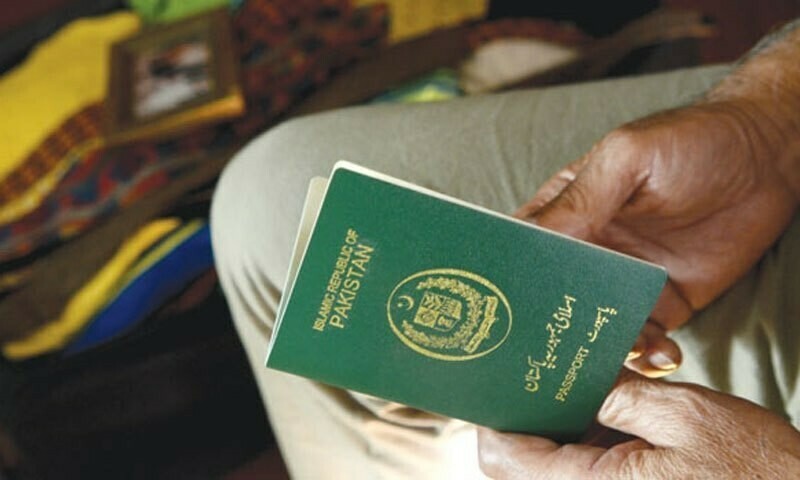- NADRA allows married women to retain their father’s name on CNICs, while the passport authority requires the husband’s name, leading to bureaucratic hurdles for women who prefer to keep their father’s name.
- Lawyer Khadija Bukhari has petitioned against this discrepancy, prompting the government to consider modifying passport policies to align with NADRA’s practices and potentially adding a column for the husband’s or ex-husband’s name.
- The passport authority argues that the current requirement ensures compliance with international agreements and thorough verification processes, which necessitates complete and accurate personal data for Pakistani citizens traveling abroad.
The Pakistan government is considering modifying its passport policy for married and divorced women, a senior official said, following a petition by lawyer Khadija Bukhari. Bukhari has challenged the current requirement for women to include their husbands’ names on their passports, highlighting the inconsistency between the National Database and Registration Authority (NADRA) and the Directorate General Immigration & Passports (DGIP) policies.
NADRA permits women to retain their father’s name on their Computerized National Identity Cards (CNICs) even after marriage, provided their marital status is updated. However, the passport authority mandates that married women change their surname to their husband’s name.
This discrepancy arises because passports are issued based on NADRA data. Consequently, a woman who retains her father’s name on her CNIC must update her CNIC to reflect her husband’s name before a new passport can be issued.
Lawyer Khadija Bukhari recounted her experience, explaining that she had initially included her husband’s name in her CNIC data to register her marriage with NADRA. Later, she opted to retain her father’s name in the second column of her CNIC. However, when she attempted to renew her passport, she was informed that her CNIC must reflect her marital status with her husband’s name to process the passport application.
Bukhari argued that if NADRA allows women to retain their father’s name, the passport authority should align its policies accordingly. “You’re supposed to be the wife of someone, you cannot remain a daughter if you want to get a passport,” she was told at the passport office.
Passport Policy for Married, Divorced Women
Official Stance and Potential Changes
Mustafa Jamal Kazi, the Director-General of Immigration and Passports, acknowledged that the current policy is a legal requirement driven by international agreements. Unlike CNICs, which are used domestically, passports must comply with international standards, necessitating the inclusion of the husband’s name for married women.
To address this issue, the Secretary of the Interior has formed a committee chaired by himself to review and potentially amend the passport policy. Kazi proposed adding another column to the passport for the name of a woman’s ex-husband or the father of her children in cases of divorce. This approach aims to ensure comprehensive data for international verification and prevent potential issues for women abroad.
Kazi emphasized the importance of complete and accurate information in the database for international verifications, which different countries require from Pakistani citizens. The committee’s task is to resolve the discrepancies between NADRA and the passport issuing authority, ensuring that policies regarding married women’s documentation are consistent and fair.
Here’s How Pakistanis Can Apply for the France Talent Passport. Read the full story here:
France Talent Passport serves as a prolonged residency authorisation intended for foreign employees and self-employed individuals aiming to contribute to France’s economic advancement. Holding an employment agreement and intending to reside in France for more than three months are prerequisites.
Here’s How Pakistanis Can Apply for the France Talent Passport
Have something to add? Let us know in the comments section below.
For more news and updates, stay tuned to Wow 360.
